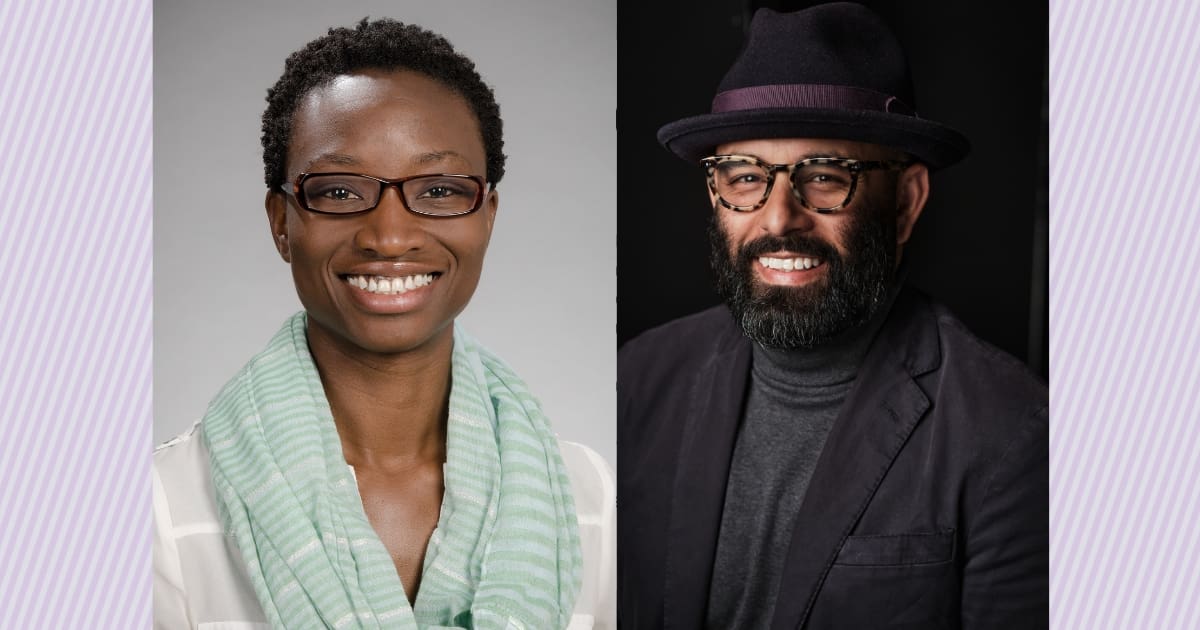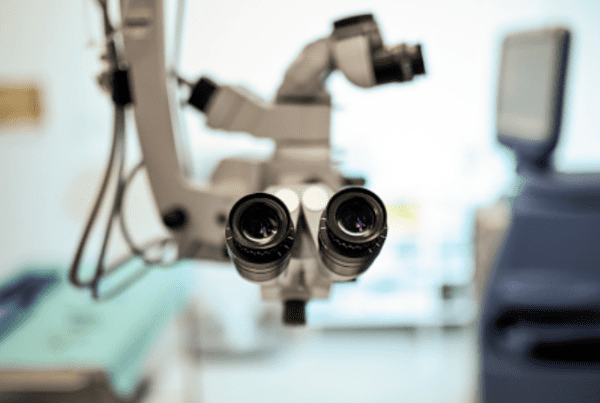Highlights | Working to make OB-GYN more equitable
- The field of OB-GYN faces significant racial and healthcare inequities and biases.
- Addressing and finding solutions is important, and a recent edition of the journal Obstetrics & Gynecology does just that.
- Kemi Doll, MD, and Edwin Lindo, JD, contributed to the special edition about reproductive justice.
In order to correct and prevent medical racism and healthcare inequities, medical professionals and researchers must talk openly about the problems, understand their true impact and work together to find solutions.
Which is exactly what a group of more than 1,100 experts did for the October 2023 “Racism in Reproductive Health: Lighting a Path to Health Equity” special edition of Obstetrics & Gynecology, commonly called the Green Journal, a prominent OB-GYN publication. Contributors included Kemi Doll, MD, a gynecologic oncologist at Fred Hutchinson Cancer Center at UW Medical Center – Montlake and Edwin Lindo, JD, a critical race theory scholar and professor and associate dean for Social and Health Justice at the Office of Healthcare Equity.
Doll and Lindo served on the steering committee for the journal issue, which took more than a year’s worth of time and effort to compile, plus they authored individual articles for the edition.
Working to achieve true reproductive justice
Part of Doll’s contribution to the journal was a call to action for reproductive health practitioners. In her letter, Doll writes about how historical racism in the healthcare of women and people of color permeates today’s OB-GYN health inequities.
Instead of giving up in the face of these challenges, though, she urges her colleagues to stay motivated: “We work because of a determination to take action toward creating a world where our bodies are no longer a site of sanctioned trauma and scientific knowledge is used to expand our humanity rather than degrade it,” she writes.
In the letter, Doll also emphasizes the importance of making sure OB-GYN professionals are educated in how racism impacts the field, that more career development opportunities are made for scholars focused on health equity, and that communities are included in work done to benefit the health of their members.
Doll encourages all medical professionals to read the special edition issue regardless of their specialty, since racism affects all areas of healthcare.
“It’s important to recognize how powerful racism is in determining how we see medical problems, how we study disparities, how we care for patients, what research questions we ask and how research is funded,” Doll says.
One example is in Doll’s field of gynecologic oncology, where Black women and people diagnosed with endometrial cancer — the most common gynecologic cancer in the country — have a death rate from the disease that is almost double that of white women and people who are diagnosed.
“I hope people read the issue with the takeaway that in some way, racism probably impacts almost everything they know about research in OB-GYN,” says Doll.
Ensuring equity in research and the journal review process
Lindo contributed to the development of a health equity rubric for journal editors to use when evaluating research article submissions.
The goal of the rubric is to ensure that published articles are free of racist assumptions but also to make sure articles that previously wouldn’t have been accepted or considered because of their focus on addressing racism, especially those by Black, Indigenous and people of color, are given more serious consideration.
“The question we asked ourselves was, ‘How do we create racial equity in the process of journal submission and review?’” Lindo says. “We both developed and utilized the rubric for the special edition issue, and the Green Journal ultimately adopted it for their future issues.”
Part of the rubric involves researchers and reviewers asking themselves about their positionality in relation to the work: How is their identity similar to or different from the people affected by their research? How is race defined in the work, and is it defined at all? Is race a necessary part of the work? Is race being pathologized or erroneously being used as an indicator of health outcomes when racism and health inequities should be focused on instead? And, most importantly, is this work causing harm?
The rubric is a novel concept; most peer-reviewed journals don’t have anything quite as robust. It’s also a work in progress, Lindo says, and he hopes others will use it as an example and keep honing and improving upon it.
“The rubric is the beginning of asking critical questions, making sure we are telling the story of science that is accurate about the influences of systemic marginalization and racism,” Lindo says. He reminds us, “We should be pathologizing racism rather than pathologizing race.”
Building equity off the page
Contributing to the journal issue was just one facet of the work Doll and Lindo do each day to advance reproductive justice and equity and inclusion in healthcare.
Doll’s research at UW Medicine focuses on examining and finding ways to correct inequities in diagnosis and treatment for gynecological cancers, which disproportionately affect Black women and people. She is the founding director of the Gynecologic Research and Cancer Equity (GRACE) Center in the Department of Obstetrics and Gynecology and the co-founder of the first non-profit organization to serve the Black community with endometrial cancer, Endometrial Cancer Action Network for African-Americans. In 2020, she created the Success for Underrepresented Faculty (SURF) career development program at the School of Medicine as the inaugural director of Underrepresented Minority Faculty Development. Today, she continues in the Office of Faculty Affairs leading workshops for faculty across the school.
Lindo is the assistant dean for Social and Health Justice within the UW Medicine Office of Healthcare Equity, a faculty member in the Department of Family Medicine and a critical race theory scholar teaching, researching and publishing on how we must achieve health justice. Along with his wife Estell Williams, MD, a surgeon at UW Medical Center, they created Estelita’s Library, a community gathering space, library and bookshop focused on social justice.



